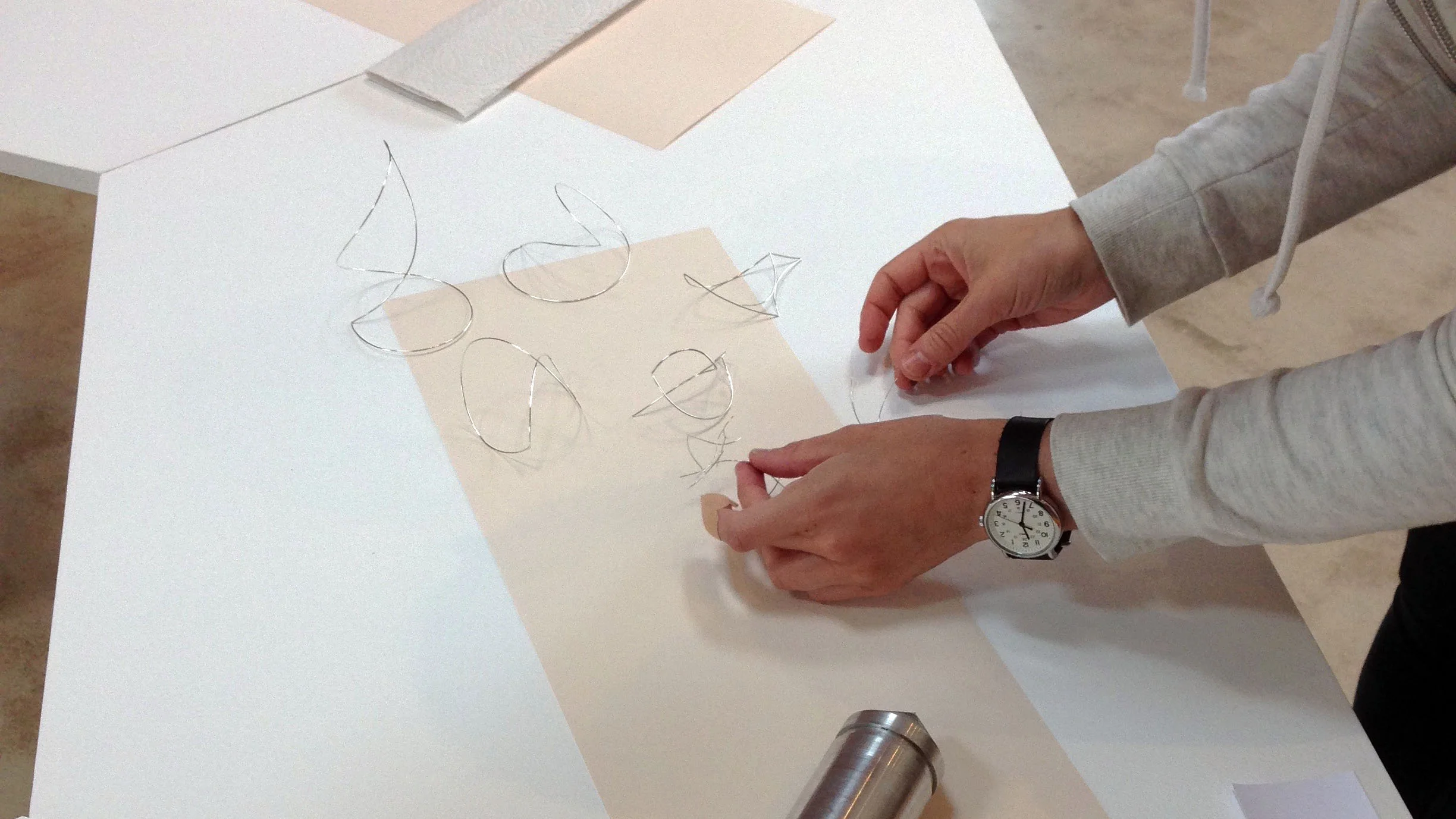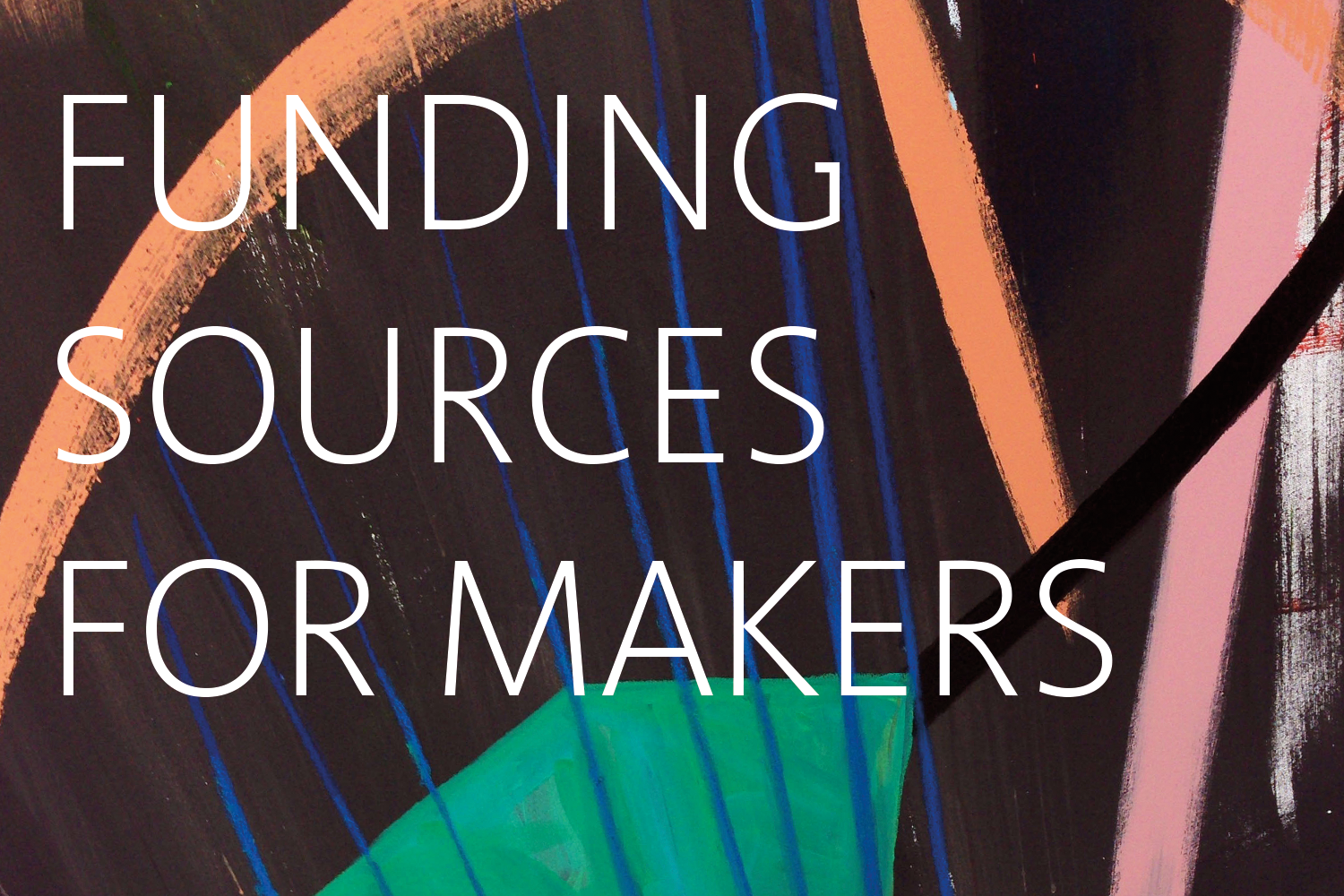I’m writing this with one eye on the sky, which is a luminous soft blue with such little variation in tone that it just seems to go on and on. I’m desperate to be outside but, in a flash-back to all school exams and university finals, I have to stay in and work. You see, I’ve given myself the task of making an Arts Council funding application and if I don’t chip away at it I won’t meet my self-imposed deadline.
This is my first application, and it’s a bit daunting. Mostly it’s the finance stuff that’s worrying me – pinning down the budget, trying not to think about how much money I might be responsible for soon. Luckily the writing and the explaining about the project doesn’t worry me too much. I know what we’re trying to do with this project, I know what it’s all about, who it’s for and what it will hopefully offer makers and participants. But still, it’s a big document and they don’t make it easy for you.
Luckily, I’ve found lots of helpful people willing to chat about their experiences making ACE applications, and there are even lovely people who have translated the somewhat confusing online forms into a handy cheat-sheet. I’m fortunate that the venues I’m partnering with are experienced at making applications and can offer me support once I’ve done all the groundwork. But what has been most helpful so far, is the chance to talk to ACE Relationship Manager for the SW region, Andrew Proctor. I popped to Bristol yesterday to have a chat with him about the project and get some advice about the application process. As well as discussing my project, we also talked about the changes to the funding streams that ACE introduced last month, and the possibilities they offer craft makers.
Up until recently, if you wanted to apply for money from ACE you would submit an application to their ‘Grants for the Arts’ scheme, which was open to a huge range of individuals and organisations working in the arts (including dance, music, literature, theatre, museums, archives etc). And, although you could apply for quite small amounts (from £1000) I think it had the feeling that it was mainly for larger projects. This funding scheme was also quite specific in the types of work it would fund – the projects needed to have a public-facing element, and audience engagement was a vital part of any work. So in many ways it’s not surprising that a lot of craft makers didn’t see it as an option for their work. I haven’t done any research into this yet, but I suspect that craft is probably under-represented in Arts Council funding, especially compared to visual arts, theatre and music. Maybe this is because as students and practitioners in the early stages of our careers we aren’t made as aware of funding opportunities as those in other art/design disciplines (I know it was never mentioned on my BA). How many makers do you know who have applied to the Arts Council?
But, a new funding scheme – Developing Your Creative Practice – addresses many of the issues that makers may have had with Grants for the Arts. It’s much less restrictive and rigid, it doesn’t need your work to be public-facing and you don’t need to have match funding in place. Here’s what they say about it:
“This programme will give individuals the opportunity to apply for £2,000 to £10,000, to take a dedicated period of time to focus on their own creative development, and take them to the next stage in their practice.
We would like to see applications for development activities from practitioners working in any of our supported disciplines, where a clear development opportunity has been identified. This could be for a period of research, time to create new work, travel (including international working), training, developing future ideas, networking or mentoring. Developing your Creative Practice encourages development by allowing artists and cultural practitioners to innovate and take creative risks, work in new ways and to eventually reach new audiences.
You may be an independent producer or curator who wants to take time to attend a conference – in England or abroad – and build your networks for future work. You might be a writer who needs time to write and explore a new direction for your work. You may want to take some time to work with other collaborators to explore how you develop, without the pressure of producing finished work to share at the end. These are just examples of how this programme could support your work, and not an exhaustive list. We want to make sure that as an independent practitioner, you have the tools you need to innovate and to build a successful practice.”
Personally, I think it sounds like a very exciting development. I am thrilled that the Arts Council is recognizing the importance of supporting artists to dedicate time and space to take risks, to push their practice forward. I would love to see more craft practitioners take advantage of it – this opportunity is for you! So, if you have ideas that you’ve never acted on because there isn’t the time or you can’t afford it, why not take a look at the ACE website and see if the solution is there? With my slightly cynical, reality-hat on, I wonder how long this funding will exist, so don’t miss out – take the leap with your creative practice!
Notes:
The ACE website has loads of useful info, but this blog post ‘10 Things you need to know about DYCP’ is a really good place to start. Don’t worry if you still want to apply for projects in ‘Grants for the Arts’ style – that funding still exists, it’s just been rebranded as ‘Arts Council National Lottery Project Grants’. The deadline for the first round of DYCP applications is 16th May 2018.
So, having done quite a bit of research now on this topic, I thought I’d share it with you.
I’ve put together a new e-flet outlining all the main sources of funding for craft makers.
Sign up to my monthly newsletter to get your free copy. (If you’ve already signed up keep an eye on your inbox, the e-flet will be with you soon!)

